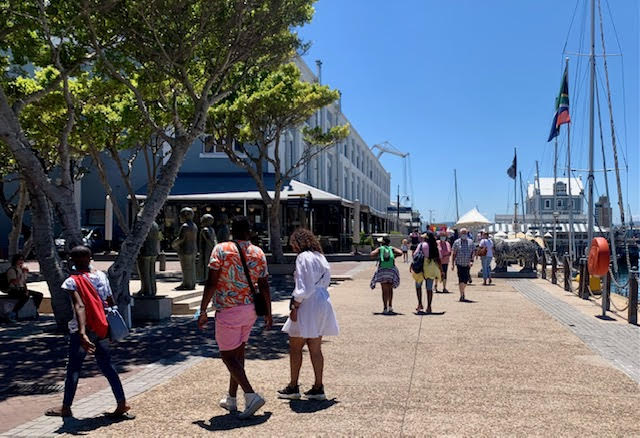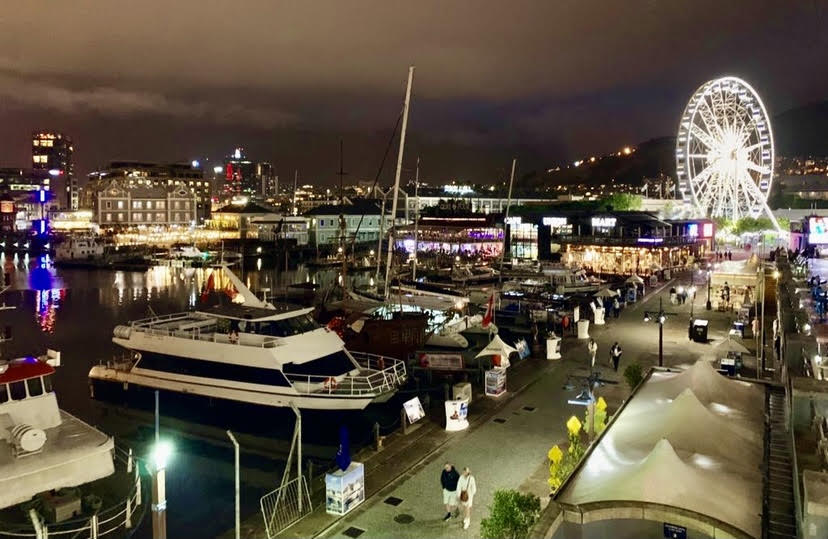South Africa offers the world a way out of Covid as Omicron is in full retreat: New infections down and death rate dropping

As Covid infection rates are dropping rapidly and tens of thousands of South Africans recovering from Omicron without having to go to hospital, it seems the country is heading for a healthy start of the year.
In fact, Covid experts are all saying the same: the Omicron wave has passed and other countries can expect the same cycle in the next few months.
The spectacular drop in new infections and hospital admissions has led the government of South Africa to lift its strict night time curfew, marking an important milestone in the fight against Covid.
Omicron receding quickly
Coronavirus experts are nearly ecstatic as the Omicron variant seems to subside as quickly as it came. Infections are dropping dramatically and practically all virologists in the country are confirming the Omicron wave is subsiding quickly.
Perhaps more importantly, Omicron’s death toll is “substantially lower” than during the much more lethal and aggressive Delta variant, South African vaccinologist Shabir Mahdi told various media.
His observations are confirmed by Ridhwaan Suliman, a senior researcher at the respected South African Council for Scientific and Industrial Research (CSIR), who said hospitalizations and deaths from this wave have proven to be “significantly lower relative to that experienced in previous waves.”
What’s even more encouraging is that the much-feared Delta mutation has largely been replaced by Omicron, which – according to multiple studies – seems to be the mildest variant so far.
Suliman said South Africa and most of the southern countries of the continent have now “surpassed the peak of the Omicron wave, driven by the significant decline in the populous province and epicentre: Gauteng,” the province that is home to Johannesburg, the country’s largest city.
Positivity rates have dropped to under 30 per cent, which shows “the decline in infections is real and not a testing artifact,” Suliman stressed.
Global path out of Omicron
The latest developments in South Africa may offer the rest of the world a way out of Omicron, as Salim Abdool Karim, one of South Afrcia’s most important infectious-diseases scientists, is convinced that “every other country, or almost every other, will follow the same trajectory.”
Karim, who has led the pandemic response in South Africa, also told various media the peak of the Omicron wave has passed, comparing the wave of cases to Africa’s highest mountain.
“If previous variants caused waves shaped like Kilimanjaro, omicron’s is more like we were scaling the North Face of Everest,” Karim said, referring to the near-vertical jump in infections that South Africa experienced during the final weeks of November and first two weeks of December.
His peer, the chairwoman of the South African Medical Association, Dr. Angelique Coetzee, a household name in South Africa, could not agree more: the country is “over the curve and [infection] numbers are much lower,” she said.
Finally, another well-known virologist in Africa, Michelle Groome, of the National Institute of Communicable Diseases (NICD), equally told multiple news outlets that “we have surpassed the peak of infections.”
Groome cited figures from the NCID showed that new cases dropped by nearly a quarter over the past seven days, following another 14 per cent drop the previous week.
There are currently no restrictions in South Africa. Restaurants, shops, cinemas, malls, bars, coffee shops and gyms are all open, both indoors as well as outdoors.
‘Whiff of breath’ is enough
The findings are remarkable as only “a whiff of infected breath” is enough to catch the most transmissible variant of coronavirus, a leading scientist warned earlier this week.
Professor Peter Openshaw, who sits on the UK’s New and Emerging Respiratory Virus Threats Advisory Group (Nervtag), stressed how infectious Omicron is.
“We’re lucky really that it wasn’t this infectious when it first moved into human-to-human transmission We’ve had several iterations of this virus going through different stages of its evolution,” he said.

Economic damage
Despite the upbeat numbers in South Africa, the country recently urged the British government to compensate the country for the economic damage it suffered as a result of Britain placing SA on its ‘red travel list’ in November.
South Africa’s Department of International Relations demanded financial compensation from the UK after the movement of people was severely restricted, saying Africa’s largest economy took a serious beating because of Britain’s decision.
Ministry spokesperson Clayson Monyele told various media in South Africa that the travel ban had caused severe economic damage and Britain should pay for that.
“Are you going to compensate us, because it has now been proven that the travel ban was wrong.”
Government official Clayson Monyele
In November, the UK imposed travel bans on six African nations, including South Africa, after the emergence of the Omicron variant, adding the countries to its notorious red list, thereby applying strict quarantine requirements under government supervision at hotels close to UK airports.
Following the UK’s decision, the EU and US imposed similar restrictions within days.
‘Not personal’
Following the compensation demands, the British High Commissioner in South Africa, Antony Philipson, hit back and said made clear the UK has no intention to compensation South Africa.
Although he did acknowledge the UK’s decision to add South Africa to the red list had caused economic damage, Philipson insisted the move was based on science and the decision was made in the interest of Britain’s public health.
Adding countries to the UK’s red list was never personal, Philipson said. Instead, the Foreign Office veteran said countries should work together to mitigate the risks.
“I think there’s be a huge amount of work done between South Africa and the UK on the risks this variant poses to us together,” Britain’s most important diplomat in South Africa said.
African countries were not alone in condemning the travel bans imposed by the UK, EU and US. The WHO also fiercely lashed out as it called the response “extreme.”
“These types of interventions are not sustainable. Those types of extreme measures are not our recommendations.”
Dr Catherine Smallwood, Senior Emergency Officer at WHO’s Regional Office for Europe.
The WHO’s regional director for Africa, Dr Matshidiso Moeti, called on countries “to follow science” and international health regulations in order to avoid using travel restrictions.